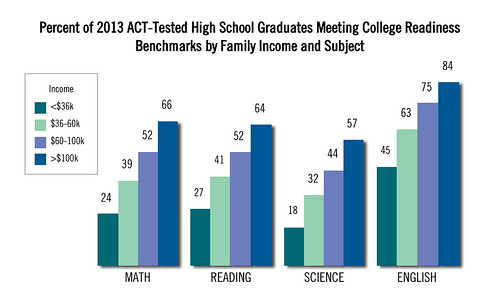Students aim to ImpACT achievement gap
December 1, 2015
A group of Tulane students are looking to change the relationship between household income and standardized test scores.
Sophomore Rachel Budd and junior Jessica Tran started a free ACT tutoring program for low-income New Orleans students, called ImpACT. Tulane student volunteers go to New Orleans Charter Science and Mathematics High School daily, with the aim of raising students’ scores through individualized tutoring.
“Most students at Tulane fill a service requirement or join an organization for a brief period of time,” said Hannah Horowitz, a graduate student fellow that oversaw the creation of ImpACT. “But to actually start an organization takes tremendous time and effort, and ImpACT was willing to dedicate themselves to that cause.”
This fall was ImpACT’s pilot semester at “Sci High.” Tutors from the program are at the school on Loyola Avenue daily during their “Smart Lunches” program. The program offers the chance for students to meet with tutors during a 30-minute period in the middle of the school day. The tutors aim to get on a first name basis with the students to optimize the individual attention needed to reach one’s potential on a test as complex as the ACT.
College aptitude tests can unintentionally favor more privileged students. A study released by the National Council for Community and Education Partnerships in conjunction with the American College Test organization revealed that there is a positive correlation between family income and ACT College Readiness Benchmarks, or numbers that indicate a student’s ability to earn a satisfactory grade in a first-year college course.
“With something like the ACT or SAT … it’s not always how smart you are, it’s how good you are at studying for it, and if you can afford to pay [for a tutor],” Budd said.
Infographic by Samantha Sitt
Budd and Tran met at a Changemaker Institute information session, where they came up with the idea of starting a program to close the gap in college readiness between low- and high-income students. Budd describes the Changemaker Institute as “Tulane’s version of a social entrepreneurship incubator.”
ImpACT tutor sophomore Roark Marks said individual tutors are ideal in tackling the unintentional partiality of college aptitude tests.
“I would say that these tests have quite a few other biases that are just as, if not more, significant regarding disparity among students’ test scores,” Marks said. “I think it’s important enough that I spend my time trying to ‘fix’ it by helping these kids raise their scores, but changing the test to fix it would probably be a waste of time.”
One of these biases is the “stereotype threat,” a phenomenon coined in 1995 by researchers Claude M. Steele and Joshua Anderson, suggesting that individuals can subconsciously affirm stereotypes about their race or identity in a way that is damaging, such as standardized test performance. They conducted a series of experiments showing that African-American college freshmen and sophomores performed worse on standardized tests compared to Caucasian peers when race was emphasized. When it was not, however, they performed almost equivalently.
In 2010, the U.S. Census Bureau estimated that 60.2 percent of New Orleans’ population is African-American.
Both Budd and Marks described the students as engaged and determined to reach their goals.
“What made Jessica and Rachel stand out was their willingness to embrace the iterative process,” Horowitz said. “They came in with lots of questions and acknowledged that what might sound simple on the surface takes immense work and dedication … they didn’t proclaim to know.”










Leave a Comment